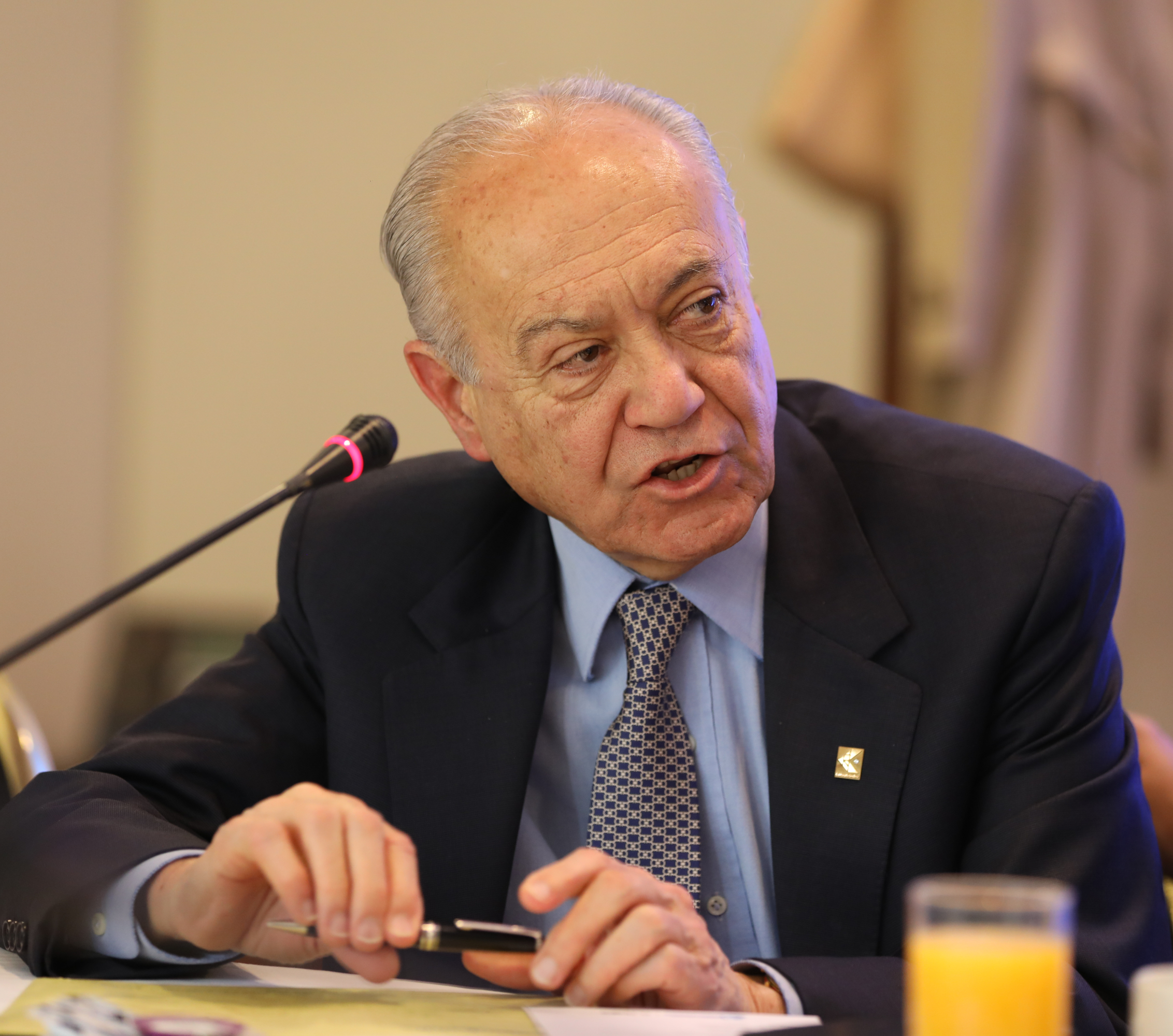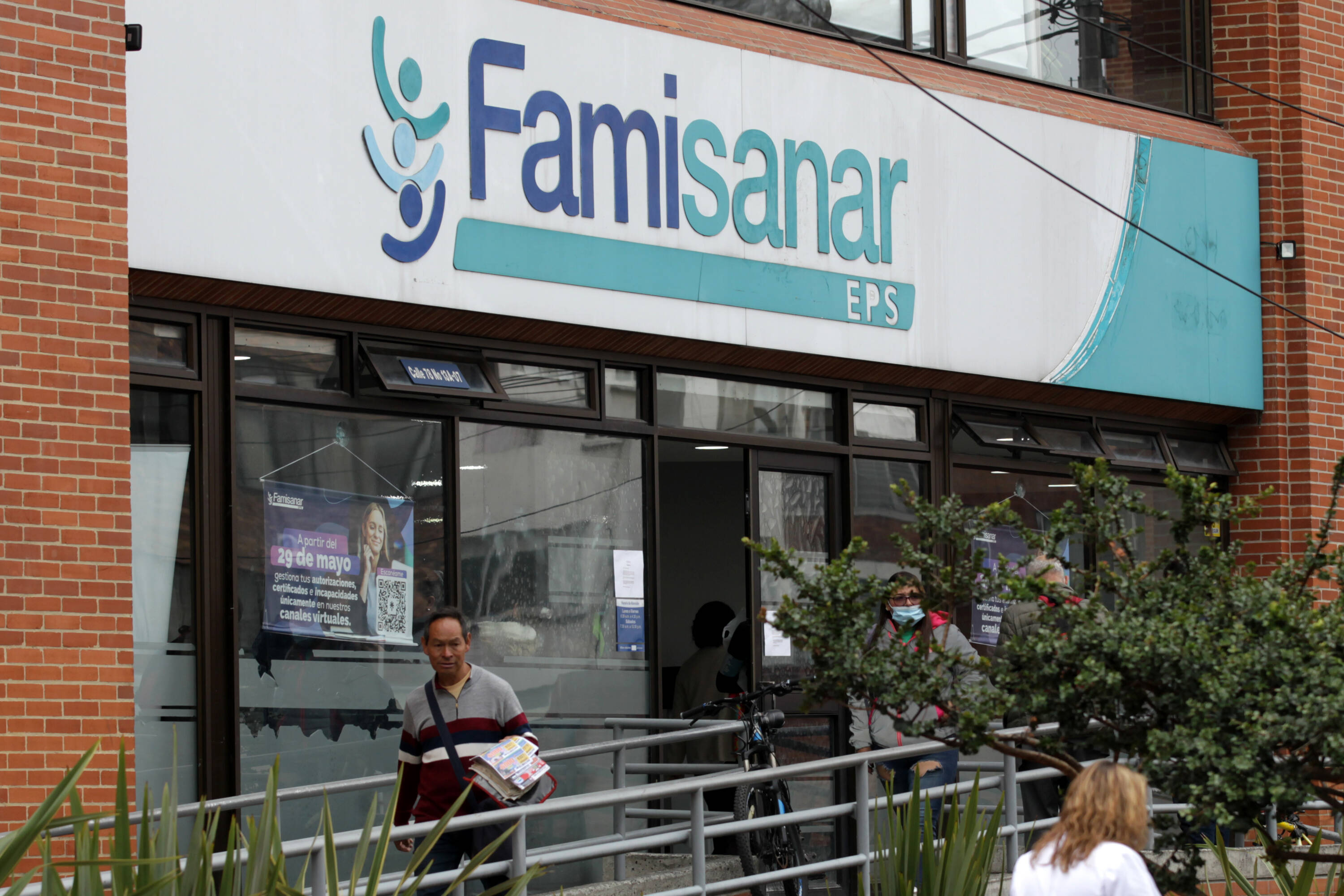'Famisanar talks about what it has paid but not about the debts it still owes us': President of Colsubsidio

The termination of the contract between Droguerías Colsubsidio and EPS Famisanar for the delivery of medications, which will take effect on August 1, 2025, has raised alarm among members of this insurer, which has been under intervention by the National Health Superintendency for over a year.
While Famisanar maintains that the contract termination was due to failures in drug dispensing, Colsubsidio has emphasized that the decision comes amid a multi-million-dollar debt exceeding 781 billion pesos, of which 208 billion corresponds to drug dispensing and 572 billion to medical services provided in its network of clinics and outpatient centers.
In an interview with EL TIEMPO, Colsubsidio president Luis Carlos Arango asserts that although Famisanar has reported payments of more than 2 billion pesos since September 2023, it has not been clear about the outstanding obligations.
"They say how much they've paid, but not how much they owe," he says. Arango warns that the situation has become unsustainable, to the point that Colsubsidio has had to continue delivering medications with its own resources due to the EPS's nonpayment.

Colsubsidio Drugstores will deliver medications to Famisanar members until August 31. Photo: Colsubsidio
Although the contract will end on August 1, Colsubsidio will continue providing the medication delivery service until August 31, in a transition phase to reduce the impact on the more than 1.6 million Famisanar members it served, Arango said. However, the executive warns that the new model with four regional operators could create logistical complications.

Luis Carlos Arango, president of Colsubsidio, spoke in an interview with EL TIEMPO. Photo: MAURICIO MORENO EL TIEMPO
They owe us 781 billion pesos, divided into two fronts. One, for healthcare in clinics and medical centers—which totals 572 billion—and the other, for medications—208 billion. In the statement, they say they've paid more than 2 trillion pesos between September 2023 and today, and that may be true. But they don't say how much they owe. I think a full statement would help everyone understand. They only present what interests them: what they've paid. Of course they've paid, because over two years we treated 1.6 million people. But they should also say how much they owe.
Had they already warned Famisanar about this debt before the contract was broken? Of course, we charge them every month, as we've always done. It's nothing new. You send them a bill for 100 billion pesos and they pay you 50, and the other 50... kiss them goodbye. No, it can't be done like that.

Colsubsidio served more than 1.6 million Famisanar members. Photo: César Melgarejo/El Tiempo
They don't say anything; they pretend it's not their fault. This is very difficult. In the end, all of this is financial. The health care system is very nice, but how can I deliver medications if the laboratory won't give them to me because I don't pay them? And if Famisanar doesn't pay me for what I'm delivering to its patients, I can't continue delivering them.
How could this disruption impact Famisanar users, considering that Colsubsidio has one of the largest networks in the country? It's going to be extremely complicated. But that decision was made by the Famisanar auditor. He'll see how he serves the people. I promise to serve you well until August 31st, and I'll do everything possible to provide good service until that date.
Have you received any comments or reactions from Famisanar users? No, we haven't received any comments yet, at least not that I know of. We've been making an almost superhuman effort to properly care for all the patients under our care, both in terms of medications and healthcare. So far, the contract for medical care continues.
To clarify for users, is the only service you will stop providing medication delivery? Yes, sir. We'll do that until August 31st. We'll no longer deliver medications to Famisanar members on September 1st.
What efforts has Colsubsidio made to prevent this breakup from occurring? With our own resources. We paid the laboratories to deliver the medications so we could distribute them, while Famisanar refused to pay.
How do you analyze the current situation of the healthcare system and what possible solutions do you see? The health system has very significant structural problems. There are many interventions, and there's also the issue of payments that Adres must make for events. This creates a liability that we, the IPS, bear, and, obviously, the service deteriorates. To solve this, there must be a comprehensive structural approach: either we maintain this system with the necessary adjustments, or we change it, as proposed by the health reform currently in Congress. But now we have a broken system and a new one that won't take off. This is very difficult.
Environment and Health Journalist
eltiempo




